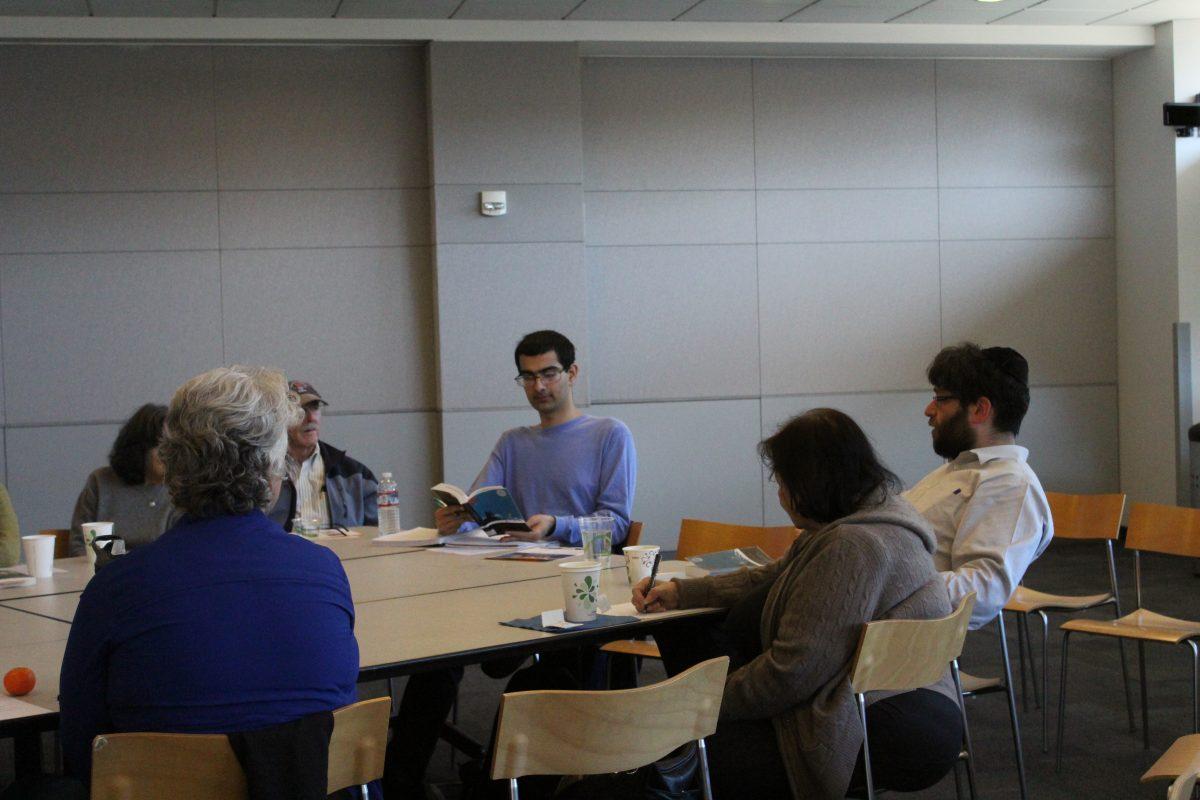The “Coming to America” book discussion series debuted Sunday with a book about a young, spirited and mischievous 9-year-old boy’s journey from Russia to New York.
The continuous series plans to cover other books regarding immigration in the following months. The program is part of The Yiddish Book Center in which Jewish writers share their work with reading groups.
The first of the four planned books was “Tevye the Dairyman and Motl the Cantor’s Son” by Sholem Aleichem.
This was an English translated version of one of Aleichem’s recognized novels which he wrote in Yiddish. The 2009 version published by Penguin Classics was the one used for discussion.
The book takes the point of view of a young child named Motl and his adventures of living life in America after emigrating from Russia.
About 20 people attended the panel led by San Jose State Jewish Studies Coordinator, Ignat Ayzenberg. He discussed the content of the books, which depicts the hardships that drove Jewish immigrants to America.
One of the examples is the pogrom, an organized movement to massacre the Jewish people in Russia. From 1905 to 1906, there was a large number of Jewish people coming to America to escape the discrimination.
Aleichem’s work focuses on the realistic experiences of being an immigrant. Among the topics he likes to cover in his stories is a process of growing and becoming acquainted in a new home environment.
“You see that vulnerability in the very way that he’s trying to contain that vulnerability of the people who come to America,” Ayzenberg said.
He said the book took place in a time when the majority of Russians and its empire were illiterate.
The heavy machinery industry, which deals with large equipment and facilities, was one of the ways to make money for those without an educational background.
The Jewish community who lived in Russia had to work in the machinery industry in Russia which gave them little opportunity to contribute in the country.
“When I read a book like this of a 9-year-old by Sholem Aleichem, I look at it more: how he wants to give the context [to] what people were experiencing at that time,” Ayzenberg said. “So here, Sholem Aleichem is trying to give you a personality type; a character he’s trying to develop.”
Librarian Deborah Estreicher said this discussion series was an opportunity for attendees to learn about the immigration experience.
“The richness that the immigrant population has brought here should not be overlooked and the tragedies that have brought people here should be understood,” Estreicher said.
Ayzenberg compared Aleichem’s work to Mark Twain’s, pointing out the way Aleichem tackles serious topics while making it easier for people to read them.
“They shared a comic, a dark humor,” Ayzenberg said. “It’s critical of the injustice of inequality of [superstitious] beliefs.”
The next discussion will feature “Enemies, A Love Story” by Isaac Bashevis Singer, led by English professor David Mesher on March 29.






































